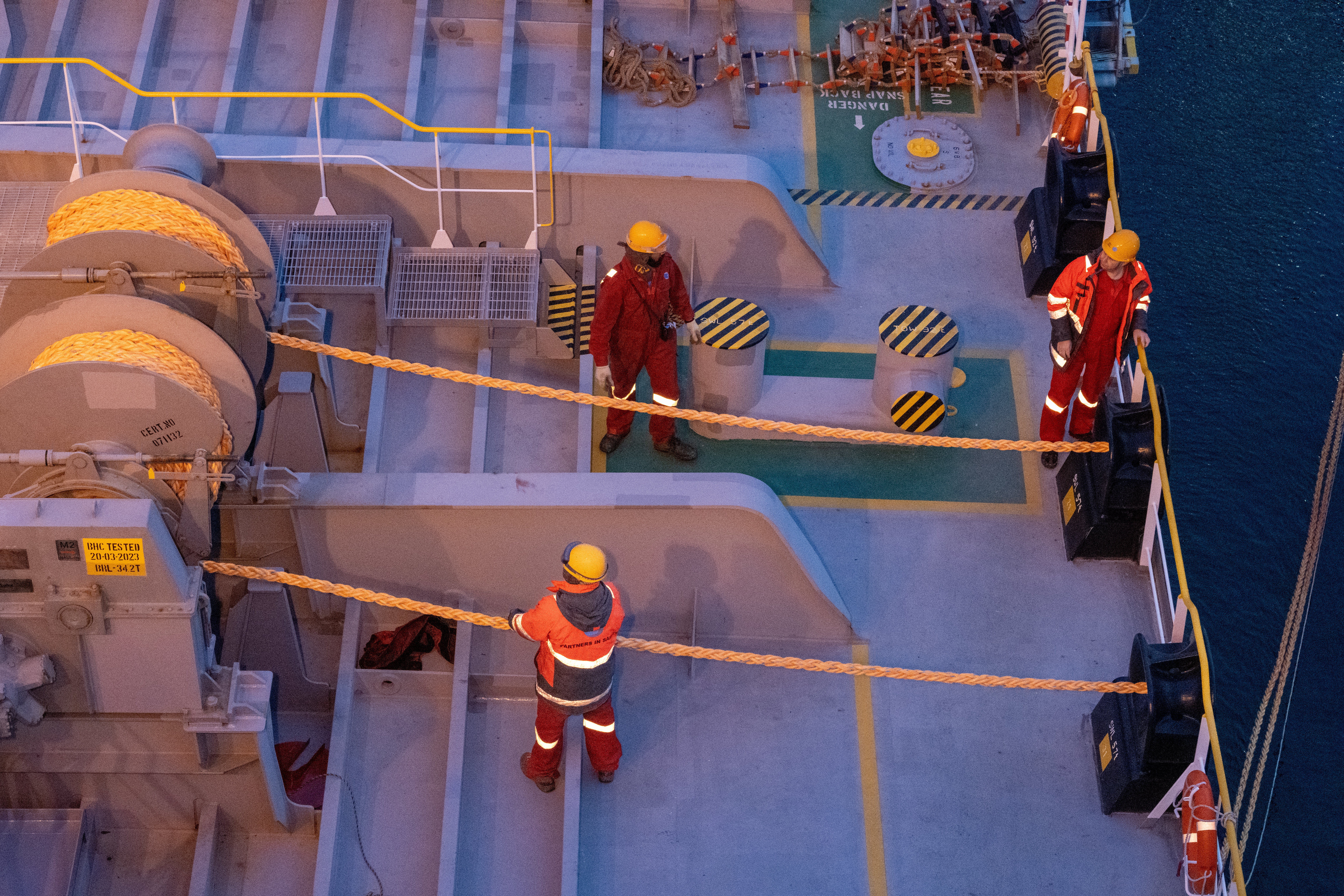Each month, we will be sharing a discussion piece written by a member of the maritime industry who can offer a unique or interesting perspective on an aspect of seafarers’ welfare. You can join the conversation on our social media channels – Facebook, LinkedIn and Twitter.
This month, Diversity Study Group Founder Heidi Heseltine highlights the importance and benefits of creating a supportive, equitable and inclusive workplace for seafarers.
Heidi Heseltine founded the Diversity Study Group in 2018 to address the need for data, benchmarking and DEIB services for those ashore and at sea across the maritime sector. Her 30-plus years’ experience in the maritime industry provide Heidi with a unique insight into maritime-related DEI, having worked with organisations spanning the sector in commercial, operational and human resource related roles.
Within the maritime sector, there is often a misconception when talking about diversity, equity, inclusion and belonging (DEIB) that it is a compliance initiative with the sole ambition being to get more women into the industry. It’s not.
When undertaken in a strategic, systematic and measurable way and driven by business leaders, DEIB can be the key to fully unlocking the potential of all employees within a business. When looking at this from a seafaring perspective, it can be the difference between a fully engaged crew operating at the highest levels of safety and a disaster waiting to happen.
The benefits of a culture of inclusion, where everyone not only feels they are able to speak up but are actively encouraged and supported in doing so by their leaders, are far reaching. Not only can this lead to greater innovation and problem solving, and an increase in a team-oriented approach; workplaces where people feel psychologically safe and that they can truly be themselves result in employees being comfortable in sharing their views and opinions without fear of criticism or embarrassment. On a ship where safety is critical, inclusion and belonging are fundamental.
It is estimated that around 1.9 million seafarers currently serve the world merchant fleet, operating over 74,000 vessels around the globe, and there is a predicted shortfall of around 90,000 officers by 2026 (The Seafarer Workforce Report 2021 from BIMCO and the International Chamber of Shipping). As the shipping industry continues to wrangle with the challenges of attracting people into a seafaring career, inclusion and belonging plays a vital role. We can already see from the investment into seafaring programmes in relatively new areas such as Ghana, South Africa, Indonesia, Myanmar and South America that cultural diversity is increasing. Gender is another focus area in order to strengthen the talent pool, expanding the diversity on board even further. Generational differences also exist, with ever-increasing knowledge gaps between the tech-savvy incoming generations and those possessing exceptional industry knowledge who are approaching retirement.
In recent reports (Seafarers Happiness Index Quarter 1 2023 and All Aboard Alliance, Diversity @ Sea Report no. 1, 15 Key Pain Points for Women at Sea), ineffective shipboard leadership, social isolation, power abuse on board, inappropriate behaviour and a lack of equity in relation to development opportunities and financial remuneration were all cited as having a negative impact on working life at sea and are contributing to a declining seafarer population.
High profile news stories in relation to sexual assault and sexual harassment have also raised concerns over the environment on board. Whilst most of the reports in the public domain are in relation to female seafarers, it is important to consider what goes unreported and across both genders. Whilst there is a lack of data publicly available to the industry in relation to this, we can gain insights of what seafarers might be experiencing when we consider global statistics for those in employment. It was reported in 2021 that, across the world, 22.8 per cent or 743 million persons in employment had experienced psychological, physical or sexual harassment and/or assault at work, women being only slightly more likely than men to have experienced it (by 0.8 percentage points) (International Labour Organization, Experiences of Violence and harassment at work: A global first survey).
In order to overcome these challenges, leaders need to be equipped and supported to develop their increasingly diverse teams and to ensure that everyone is treated fairly and equitably and is confident and comfortable in speaking up.
Individuals considering a potential employer will not only look to see others from their demographic represented within an organisation (if you can’t see it, you can’t be it) but, once employed, will be highly unlikely to stay if the working culture is not supportive, equitable and proactively inclusive. In the Diversity Study Group’s Annual Review 2022, 37% of respondents felt their employer (who as a member of the Diversity Study Group is committed to progressing DEI), could be doing more to achieve a diverse and inclusive workplace. It was striking that employees identifying as white were most likely to say this – suggesting that for many, DEI is not simply about righting injustice or responding to a personal sense of exclusion but about creating positive and truly inclusive workplaces for all.
How organisations translate intent into action in the most effective way depends on business and operational strategy and priorities. There is no off-the-shelf solution – long-term change requires a tailored approach and the ability to pivot and change direction when needed, COVID-19 being a recent example of this.
Great insight can come from well-designed employee surveys that highlight not only where focus may be required but also what is working well. Many employers are already off the starting blocks when it comes to DEIB and have positive stories to build upon. The challenge can be identifying where to direct attention next and existing employees can play a significant role in this, particularly where existing DEIB data may be in short supply.
There are an increasing number of organisations developing a sustainable programme of cultural change for seafarers and looking to integrate their seafaring community into one overall shore/sea working culture. Some companies approach this through an operational safety lens, others from a psychological safety perspective, and others integrate DEIB into the personal development programmes they already have running. Focus areas range from improving general inclusion and belonging through to more granular projects in relation to talent retention and attraction processes. The most successful initiatives are ones with a clear and measurable DEIB strategy, driven by leadership, with defined accountability and robust communications.
It is evident that industry leaders have this on their radar; the All Aboard Alliance launched in 2022 by Global Maritime Forum is a testament to that, along with other initiatives such as the Danish Diversity Awards, the first sustainability-linked loan in the industry, and the marked increase in projects being developed and piloted across a rapidly increasing number of ship owners and managers. It is extremely encouraging to see the action being taken that should ultimately result in improved working environments for all seafarers on board.







